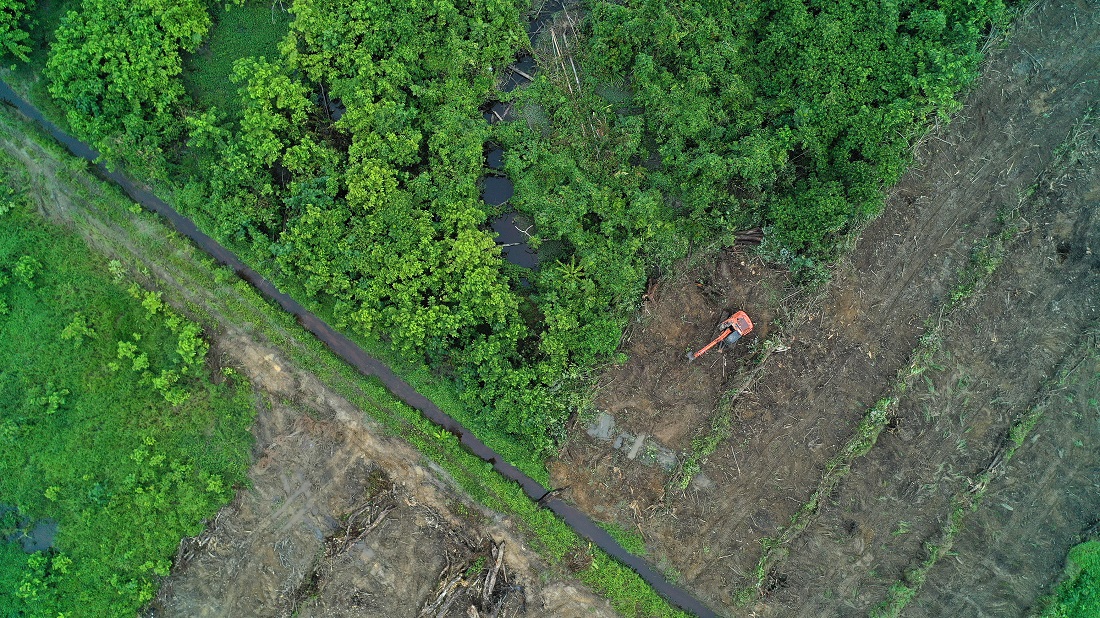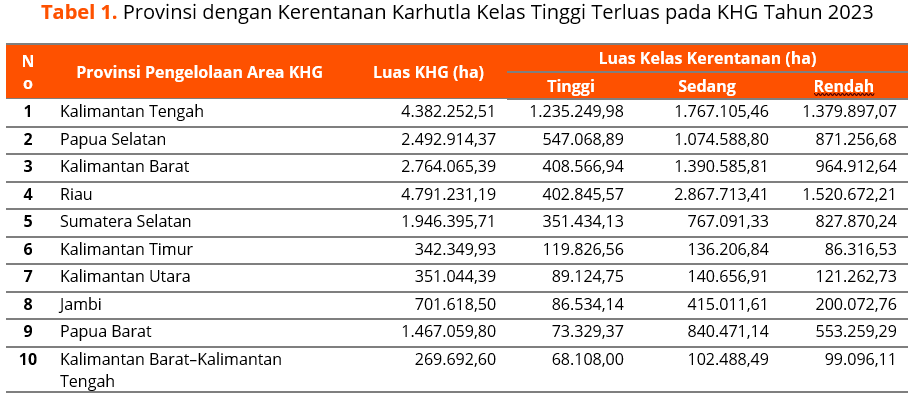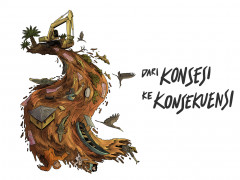The Ring of Fire #2: Land and Forest Fires in Rewetted Areas
By Pantau GambutForest and Land Fires in Papua

In recent years, investments in large-scale extractive and monoculture industries have been shifting from western Indonesia towards the eastern part, including Papua. This investment surge in eastern Indonesia has brought consequences, including an increased risk of ecological disasters like forest and land fires and floods. According to observations by Pantau Gambut, there has been a consistent upward trend in forest and land fire cases since July 2023, particularly in areas with peat ecosystems. In the following month, from August 1 to August 13, 2023, Pantau Gambut recorded 564 hotspots in the provinces of West Papua, South Papua, and Central Papua. These hotspots were spread across 10 districts and cities, including Mappi, Merauke, Panial, Asmat, Nabire, Dogiyai, Fakfak, South Sorong, Boven Digoel, and Jayapura City.
A vulnerability assessment of forest and land fires published by Pantau Gambut in July 2023 found that the Peatland Hydrological Unit (KHG) of Sungai Ifuleki Bian–Sungai Dalik in South Papua Province is almost entirely vulnerable to fires. 97% of this KHG area is highly susceptible to fire. The vulnerability of this KHG is indicated to be related to the indicative location of the Food Estate project in South Papua Province because its southern part directly overlaps with the KHG. The opening of land or land-use conversion from forests to other purposes can trigger forest and land fires, especially if peatland is burned. This improper practice significantly increases the potential for forest and land fires and the destruction of peatland ecosystems. In general, South Papua Province has 547,068.89 hectares of KHG areas with a high vulnerability to forest and land fires, while West Papua Province has 73,329.37 hectares

Considering these facts, the National Coordinator of Pantau Gambut, Iola Abas, advocates for two strategic actions. "First, this situation should be a moment for evaluating policies for protecting peatland ecosystems, including the cessation of the National Strategic Project (PSN) Food Estate on peatland." Forcing the continuation of this project could lead to more severe ecosystem degradation and an increased risk of forest and land fires. Second, Iola adds, "There should be an evaluation of law enforcement efforts and the protection of peatland ecosystems in concession areas affected by fires."
In the view of Franky Samperante, the Director of Yayasan Pusaka Bentala Rakyat, "The Ministry of Environment and Forestry should promptly conduct an inquiry into the reported forest and land fires happening within the concession zones of palm oil and industrial forest plantation companies in Merauke and Fakfak Districts.
Media Contact
If you require guidance or consultation regarding this publication, you may contact:
Franky Samperante 081317286019 Direktur Yayasan Pusaka Bentala Rakyat
Iola Abas 081263709484 Koordinator Nasional Pantau Gambut
Wahyu A Perdana 082112395919 Manajer Advokasi dan Kampanye Pantau Gambut
Website pantaugambut.id
Email [email protected]
Instagram & Twitter @pantaugambut



